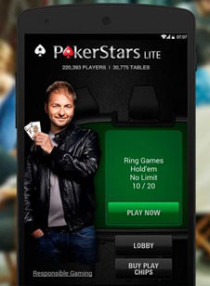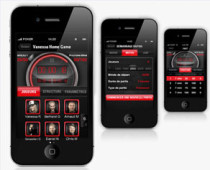The Ongoing Debate over Online Gambling in the U.S.
 Now U.S homes can play streamed games directly on their TVs. There is a war, well known to gambling industry news over online gaming in the U.S is being fought by foot soldiers in the form of iGaming columnists, pundit, lobbyists and online critics. Many feel that the availability of gambling through the internet has created a blight on mankind which will lead to nothing but addiction and misery. On the other hand, many others are in favor of taking advantage of this billion dollar industry and support the ability for Americans to use their own discretion in deciding whether to indulge in online gaming. The gaming industry has fought this war by resisting attention given to most of these pundits to avoid encouraging them. That is until now. GameFly efforts to reach different audiences through streamingSheldon Adelson, who has led the charge with his Coalition to Stop Internet Gaming, recently took some serious shots at the online poker industry. Lyle Beckwith is one of many who joined the fight and published an Opinion editorial in Roll Call weeks ago condemning legalized online gaming, attacking specifically lottery tickets and hurled unsupported accusations about the industry and its safety. The worst of these was questioning the current technology that prohibits minors and out-of-state players access to these regulated sites. Finally a shot came from the normally non-confrontational void that is the gaming industry. Anna Sainsbury, CEO of GeoComply, deals with geolocation in Nevada, Delaware and New Jersey. Her rebuttal, which provided new insights into the gambling industry, appeared on Roll Call.  “As a licensed geolocation provider in these three states, I can assure you that, in fact, these regulators literally ran thousands and thousands of tests outside of their own states’ boundaries, attempting to use all the spoofing techniques alluded to by Beckwith (and many more) in order to ensure the location results we provide are the correct ones and that their neighbors’ sovereignity over gaming is respected. Indeed, the regulators sent letters to their colleagues in neighboring states setting out the measures to ensure proper geo-location and inviting them to audit for themselves the sufficiency of the safeguards.” Sainsbury also is often invited by state legislators to give expert testimony on geolocation technology. In addition, she regularly attends and speaks at gaming conferences while impressively demonstrating geolocation technology. Geolocation services are definitely on top of the gameIt’s a shame that critics are so quick to give allegations and scenarios demonstrating how internet gambling can get into the hands of young people and those living out of state. If any of these critics tried to test these safeguards, then they would quickly learn how preposterous their allegations are. Although geolocation is at the pinnacle of gambling industry development, it is one part of a safe guard system that ensures that only qualified people can register to use internet gambling. The first of these fail safes occurs as soon as you go to a site. Your IP address is instantly tracked and as soon as you try to register the system will determine whether or not the computer or mobile device is within a territory that legalizes gambling. The next stage involves an unwanted list in which information from the person who registers is cross checked with any unwanted or “black” lists from other gambling authorities. As a person inputs their information, the online gambling site contacts another company that will pass the info onto location services in order to check for accuracy. During that simultaneous process, other federal sites, such as terrorist watch, Homeland security and Patriot Act, make security sweeps. If a person has been blacklisted by a brick and mortar casino, they are automatically barred from registration. If this occurs, the registration process can continue is if actual hardcopies of the information they used are provided. The information put into the registration form also has to comply with the network rules for validation. For example if your name is Robert and you use “Bob” then the system will refuse the name. All this happens before the biometric fingerprinting comes into play. After all is said and done, processing will be determined by the rules and regulations according to the state you’re registering from. |










